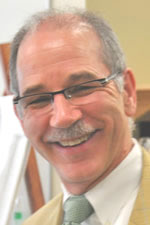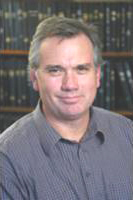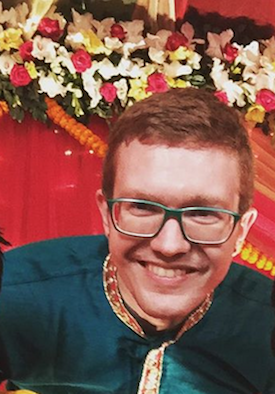

 Ling 1911W – Linguistics and Biology
Ling 1911W – Linguistics and Biology
Fridays 1:00 – 3:30
Instructor: Jeanette Gundel
Nicholson 345
Connections between linguistics (the scientific study of human language) and biology (the scientific study of life and living forms) have a long history. Most contemporary linguists view language as part of human cognition, rooted in biologically determined predisposition to acquire language and constraints on the properties of what can be acquired. Before the early 1960’s, connection between linguistics and biology was mainly restricted to anatomical properties of the human vocal tract involved in articulation of speech sounds and the role of evolution of the vocal tract in making human language possible. Other connections included metaphorical borrowing of terms from biology, such as ‘genetic’ relationships among related languages grouped into ‘language families’, whose members shared the same ‘ancestor language’. In recent decades, along with emphasis on language as part of human cognition, the focus has turned from the biology of human speech to the biological basis of human language as a system, the existence of ‘language genes’ and connections between evolution of language and evolution of the human brain. There has also been some influence of linguistic methodology on the field of biology, with researchers proposing similarities between generative models of linguistic codes (grammars) and the genetic code. This course examines the relationship between linguistics and biology, and how it reflects development of the field of linguistics and cross-disciplinary influences in general.
 Ling 8921 – Seminar in Language and Cognition
Ling 8921 – Seminar in Language and Cognition
Tuesdays & Thursdays 12:45 – 1:45
Instructor: Jeanette Gundel
Elliott S204
Advances in theoretical linguistics have made important contributions to our understanding of what we know when we know a language; but the precise manner in which linguistic knowledge interacts with other cognitive systems when it is put to use in communication is still not well understood. This course will examine this interaction Questions to be addressed include the following: How is it that we can understand what other people intend to communicate when they use language, given that the intended meaning is almost always grossly underspecified by the linguistic form alone? How does ‘context’ contribute to the resolution of ambiguities and indeterminacies, and what exactly is ‘context’ from a cognitive perspective. In addressing these questions, we will also examine the disruption (and non- disruption) of linguistic communication in individuals diagnosed with Autism, Alzheimer’s disease, and Schizophrenia. Other topics may also be covered depending on student interest.
The class meets an elective requirement for a degree in Linguistics as well as for the Cognitive Science graduate major or minor.
Combined lecture and seminar discussion. Weekly reading assignments and comments on readings; final paper/project. Intended audience: graduate students and advanced undergraduates with an interest in language and cognition.
 CPSY 8360: The Neuroscience of Resilience (2-3 credits)
CPSY 8360: The Neuroscience of Resilience (2-3 credits)
Tuesdays, 4:00 – 6:00 PM
Instructor: Kathleen Thomas
Location: TBD
“How is it that some children successfully overcome severe life challenges to grow up competent and well-adjusted?” (Masten, 2014) This question lies at the heart of developmental science research on resilience and has been the basis for a rich history of research in developmental psychopathology. However, the term resilience has been used to mean different things in different contexts, including neural plasticity, resistance to disease, recovery of function following injury, or basic immune adaptation.
In this doctoral seminar:
Discuss multidisciplinary approaches to the topic of resilience, with an emphasis on joining psychological and neurobiological notions of resilience to better understand the impacts of adversity on human development.
Examine existing literature on the neuroscience of resilience to assess the relevance of such approaches to understanding developmental trajectories more generally.
Evaluate putative biological mechanisms underlying prevention and intervention efforts to promote positive development.
Neuroscience training is not a prerequisite for this course, but readings will include primary research articles using neurobiological and neuroimaging methods.
 KIN 8135: Seminar in Motor Control and Learning
KIN 8135: Seminar in Motor Control and Learning
Tuesdays, 2:30-5:00pm
Instructor: Jürgen Konczak
This seminar will provide an overview on human sensorimotor learning. We will examine different aspects of motor learning such as skill learning, the learning of motor sequences, or the ability to adapt movements to changes in the environment. The course highlights the neurobiology of motor learning and will present current models of motor representations and how they are formed during learning. In addition, we will explore how motor learning can fail with brain dysfunction and discuss the implications of movement disorders research on our understanding of human motor learning.
Q: For whom is this a good class?
A: Graduate students in kinesiology, neuroscience, biomedical or mechanical engineering, and psychology who seek a broader understanding in the learning of behaviors.
Q: What will I learn?
A: This seminar will provide an overview on human sensorimotor learning. We will examine different aspects of motor learning such as skill learning, the learning of motor sequences, or the ability to adapt movements to changes in the environment. The course highlights the neurobiology of motor learning and will present current models of motor representations and how they are formed during learning. In addition, we will explore how motor learning can fail with brain dysfunction and discuss the implications of movement disorders research on our understanding of human motor learning.

 Psy 8036 (Kersten) - Psy 5993 Section 034 (Schrater) Topics in Computational Vision
Psy 8036 (Kersten) - Psy 5993 Section 034 (Schrater) Topics in Computational Vision
Data-driven generative models for perception, dreaming, and imagining
Instructors: Dan Kersten & Paul Schrater
First meeting Tuesday, Jan 16th, 3:00 pm.
Place:
Elliott N227
It has been proposed that perception is fundamentally a process of “analysis-by-synthesis” in which the sensory input is analyzed bottom-up, with perceptual interpretations tested and refined by top-down predictions of the input, through synthesis. However, while the computational and neural study of the analysis component is well-developed, less is known about the principles and mechanisms that underly synthesis. This seminar will explore recent advances using “deep” learning algorithms to discover hierarchical statistical regularities in large datasets of natural patterns, and the relevance of the learning results to models of human perception and recognition. These algorithms also provide the basis for the stochastic synthesis of novel, yet familiar patterns, which raises the question of whether the human experiences of dreams and hallucinations, and the ability to imagine, reflect the same statistical regularities that are discoverable using machine learning. The class format will include short introductory lectures by the instructors, and weekly student presentations of current literature. The short lectures will provide historical context as well as tutorials on machine learning (e.g. TensorFlow for neural network simulations).
Students can sign up for either Topics in Computational Vision Psy 8036 (Kersten) or Psy 5993 Section 034 (Schrater).
 IDSc 8721: Behavioral Decision Theory
IDSc 8721: Behavioral Decision Theory
Instructor: Shawn Curley
Tuesday, 10:00AM - 12:30PM
Room: CSOM (tbd)
Overview
How do we go about making choices and the judgments on which they are based? A large portion of the covered research can be conceptualized as arising from origins in normative decision theory, i.e. theory about how decisions should be made. In order to put this theory into practice, several descriptive components must come from the decision makers: their values and preferences, their judgments concerning the possible outcomes that might arise, and the goals/factors/actions that comprise the decision structure--the relevant elements for making the decision. Behavioral decision theory is interested in these descriptive components, the cognitive processes by which they arise and affect choice, and biases that can arise.
Format
The course will be primarily in seminar format. We will use our class time to discuss journal articles and chapters on selected topics. We will look at both traditional and current research in the field to understand and integrate some of the major models and methodologies employed in the field of behavioral decision theory. The course covers models and issues of preference, judgment, and uncertainty. As an example, you can view the course schedule from the last time the course was taught (Fall, 2015) linked from my home page: umn.edu/home/curley. However, the course is updated on a regular basis with each new offering.
Email curley@umn.edu with any questions.
 CSci 8980: Virtual and Augmented Reality for Social Good
CSci 8980: Virtual and Augmented Reality for Social Good
Monday and Wednesday 9:45am - 11:00am
Instructor: Victoria Interannte
Tentative location: 530A Bruininks Hall
Virtual and Augmented Reality have tremendous potential as enabling technologies for social good. Already, they are being used to enable fundamental advances in training, education, design, medicine, and other important application areas. For just a few examples: camera-enhanced VR and AR glasses are being developed into valuable assistive technology devices for people with visual or auditory deficits; immersive, interactive 360° videos are being used to present highly realistic first-person virtual experiences to promote empathy and awareness; and advances in 3D scanning technologies are enabling ever more effective perspective-taking illusions, wherein people see themselves as being someone else in VR. The goal of this class is to provide students with the opportunity to learn more about these topics through a combination of assigned readings from the current literature, self-directed literature searches and the writing of a literature review, group discussions and individual presentations to the rest of the class, and a semester-long individual or small group project of the student's own design. This class will be offered for variable credit. Students who register for 1 credit will be expected to attend class regularly, do the assigned reading, and participate in class discussions. Students who register for 2 credits will be expected, in addition, to complete a literature review and present their findings to the rest of the class. Students who register for the full 3 credits will also be expected to complete a semester-long term project related to the theme of developing or using VR or AR technology for a purpose related to improving the social good, broadly defined as increasing someone's quality or experience of real life in some small but meaningful way, either directly or indirectly, in either the short or long term.
 LING 8210 — Seminar in Syntax: Introduction to Syntactic Processing
LING 8210 — Seminar in Syntax: Introduction to Syntactic Processing
Instructor: Dustin Alfonso, Linguistics
Intuitively, we understand sentences in "real-time"— we do not wait until the end of a sentence in order to determine its meaning. Instead, we rapidly coordinate our grammatical knowledge, memory, attention, and prediction systems to build syntactic structure "on-line". In this class, we will examine how exactly this happens, by examining primary literature on the topic. Topics will include: grammatical fidelity in sentence comprehension, "syntax-first" theories of sentence comprehension, sources of processing difficulty, active dependency formation, memory retrieval, and explicit computational/mathematical models of sentence comprehension. We will also survey the methods used to investigate sentence comprehension, including self-paced reading, eye-tracking, and EEG (electroencephalography). Students will also be asked to design and run an experiment, including performing data analysis. There is no pre-requisite for this class, and students with an interest in cognitive psychology, memory, and prediction are encouraged to enroll.
 LING 5900 01/8900 01 — Topics in Linguistics: Constraints on Movement
LING 5900 01/8900 01 — Topics in Linguistics: Constraints on Movement
Instructor: Dustin Alfonso, Linguistics
One of the hallmark properties of human language is displacement (or "movement"), or situations in which a word or phrase is interpreted in one position but surfaces in another, (1). Although displacement is permitted from many constructions (2), there are also conditions on displacement, e.g., (3) is unacceptable. (1) Who did you see ___ at the police station? (2) Who did you see Dale with __ at the police station? (3) *Who did you see Dale and __ at the police station? These constraints on movement, often called island constraints, are observed in every reported language, and are relatively uniform in their application. Furthermore, children appear to have mastery over island constraints at a very young age, and adults rapidly and robustly use island constraints in real-time sentence processing. The kinds of questions that we will ask in this class are: Why do island constraints exist? Are they fundamentally constraints on the forms of sentences, or do they follow naturally from the ways that language is used and processed? How do children learn these phenomena, or are they innate? How and when do adults use this knowledge to produce and understand sentences in real time? Which island constraints are "universal", which ones vary, and why? This class presumes no familiarity with formal syntax or semantics. Students may enroll with instructor's permission. I specifically welcome students with an interest in cognitive science, language acquisition, sentence processing, or language and cognition.